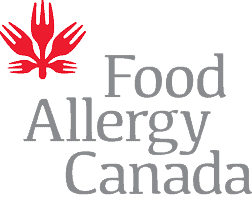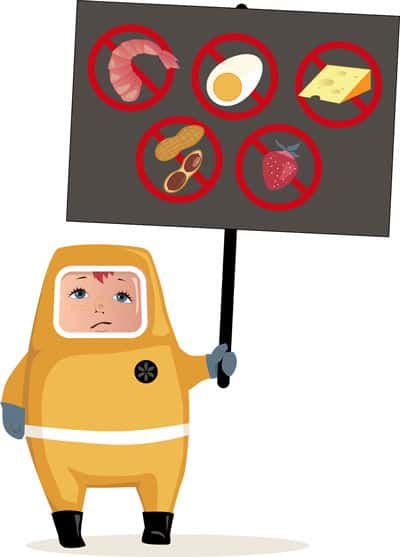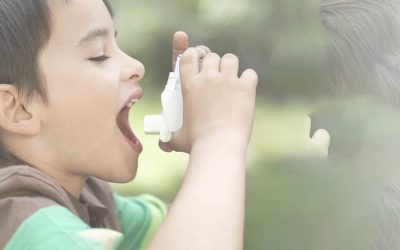Ten Great Strategies for Gaining Control of Your Allergy Diagnosis
If you’re reading this then your child has likely recently received a food allergy diagnosis or maybe even a diagnosis of multiple food allergies.
So first of all I’m sending you hugs, because I know this is potentially terrifying and overwhelming, especially if this is new territory for you.
I’ve been managing food allergies for close to a decade, which is almost as long as I’ve been a mom, and along the way I’ve picked up a few things.
![]()
With an allergy diagnosis plan, this will soon feel normal-ish
The truth is, as shocking and frightening as this new reality may feel, with proper allergy diagnosis it will eventually be normal-ish.
And though the seriousness of the allergy may not lessen, once you have your systems and plans in place, it will get easier.
That doesn’t mean you won’t have ups and downs and of course life will be different than you expected it to be, but allergies don’t have to define you or your child. They can have a full, happy, safe life, and you can too.
![]()
If you don’t know where to begin, the following are a good place to start navigating the world of allergies.
Here are my 10 tips:
- Get comfortable using the Epinephrine injector (Epipen). If your doctor has prescribed an injector make sure you get properly trained and practice until it’s second nature. I know that the needle looks big but don’t be afraid to inject if you need to. Giving the Epipen can be quite an empowering experience. Once you’ve done it, a lot of the fear around giving that needle goes away and you see how quickly the epinephrine works to stop the allergic reaction. Bottom line: the Epipen is your friend, no need to be afraid of it.
 Sign up for Food Allergy Canada’s Allergy information service [http://foodallergycanada.ca]. Get alerts with essential information regarding your child’s allergy. Make sure to take some time to review their website to start learning about the allergens your child needs to avoid. It can help you become familiar with the other names for your child’s allergen and the places it could be hiding. For example, did you know that there are over 15 different names for dairy, like Ammonium, or Lactoferrin, and that dairy can be found in caramel flavouring, hot dogs, and even in non-dairy cheeses like soy or rice cheese? This is just a small sampling of the great information that you’ll find at Food Allergy Canada (formerly Anaphylaxis Canada).
Sign up for Food Allergy Canada’s Allergy information service [http://foodallergycanada.ca]. Get alerts with essential information regarding your child’s allergy. Make sure to take some time to review their website to start learning about the allergens your child needs to avoid. It can help you become familiar with the other names for your child’s allergen and the places it could be hiding. For example, did you know that there are over 15 different names for dairy, like Ammonium, or Lactoferrin, and that dairy can be found in caramel flavouring, hot dogs, and even in non-dairy cheeses like soy or rice cheese? This is just a small sampling of the great information that you’ll find at Food Allergy Canada (formerly Anaphylaxis Canada).
- Find a paediatric allergist that you like and trust. This is still a relatively new and confusing field of medicine and it feels like the advice and best practices change often. You need one expert that you trust who will help you come up with an emergency plan (i.e. what do to in case of a reaction), understand what precautions you need to take and what are reasonable risks, and patiently answer all your
 Join a support group. Learning from other people’s experiences can be really helpful. Especially, I found this to be true, around the topics of advocating for your child at school, negotiating summer camp, travel, and managing allergies over the holidays. Check Allergy Canada’s list to see if there’s one near you. If you’re prone to anxious feelings (and what newly diagnosed allergy parent isn’t?) be prepared that hearing from others may trigger fear or an emotional response, it’s okay to take a break if you feel you need one. Online support groups are another alternative and can help parents feel less alone especially if they don’t have anyone else around them going through similar challenges. Sometimes, you’ll need to vent and it helps to have people who understand the challenges you’re facing.
Join a support group. Learning from other people’s experiences can be really helpful. Especially, I found this to be true, around the topics of advocating for your child at school, negotiating summer camp, travel, and managing allergies over the holidays. Check Allergy Canada’s list to see if there’s one near you. If you’re prone to anxious feelings (and what newly diagnosed allergy parent isn’t?) be prepared that hearing from others may trigger fear or an emotional response, it’s okay to take a break if you feel you need one. Online support groups are another alternative and can help parents feel less alone especially if they don’t have anyone else around them going through similar challenges. Sometimes, you’ll need to vent and it helps to have people who understand the challenges you’re facing.
- Decide how you’re going to handle the allergy at home. If you want to keep an allergen-free house but are overwhelmed by the thought of it, there are resources to help you. In Toronto, Sure Chef will come to your home, go through your kitchen, and help you clear away the allergens. They will even work with you to replace the offending foods in your family’s diet and provide allergy-friendly cooking classes and grocery shopping support. Know that a choice to be completely allergen-free when your kids are little can always be revisited when they are older and have a better understanding of their allergy and how to reduce the risks of cross-contamination.
- Read ingredients three times. Get in the habit of reading ingredients once in the grocery store, once when you get home and are putting everything away, and then again before giving the food to your child. An old editing trick that works well here is to read the ingredients from the bottom up. This way your eye will catch things you might otherwise not notice and because allergens are often listed at the bottom it will save you time. Plan to allocate a little extra time to grocery shopping if you’re not used to stopping to read ingredients.
- Remember that ‘may contain’ statements are voluntary. This means that companies do not have to include one even if there is a risk of cross contamination. When in doubt call the company and ask questions about their manufacturing and cleaning processes and specifically about whether the items is safe for your particular situation. It’s important to make your own decisions about what level of risk feels right to you. Don’t feed something to your child just because someone else with the same allergy safely eats it.
- Soap and water remove allergens. Putting hand sanitizer on your little ones hands may help to kill germs but it will not remove allergens. Cleaning hands before eating is a good way to reduce the risk of a reaction but if you don’t have access to soap and water, you can use baby wipes. Keep a pack in your car, in your purse, or in your child’s backpack. Consider donating some to your child’s school or daycare as well since it’s an easy way for a teacher to wipe down a child who has shown up for school still covered in your child’s allergen.
- Help your child learn how to keep themselves safe. Even if you’re little one is quite young you can start teaching them about their allergy. Kyle Dine is an allergy musician performing educational concerts in schools. He teaches students about allergies in the most entertaining and engaging way. His songs empower kids with allergies, help others in the community learn how to keep their friends safe, and make everyone smile (he also has CDs and a new DVD available). Another way to help your child learn about their allergies is through books. AllergicChild has a great list that will help you teach your child what foods to avoid and a helpful directory of resources for you too.
- Always carry safe snacks. It’s better to have too much safe food than not enough. If you’re going on a long car ride, out for the day, or to visit family and friends, pack a bag or cooler with snacks, and it’s not a bad idea to have enough that you could put together an impromptu meal if you needed to. Identify easy to find safe foods that you can buy in a pinch too in case you run out.
![]()
“There’s a lot to learn and know, but have faith that you can do this.”
Here’s a bonus tip:
If you’re in this with another adult it makes it easier if you’re on the same team. Make sure that you both learn all the things together. Being able to share the responsibility for keeping your child safe will make a stressful situation that much easier.










